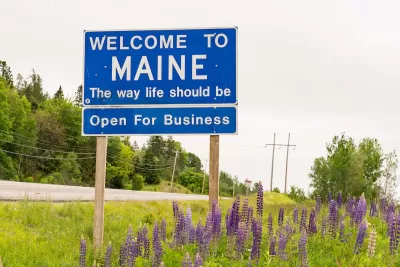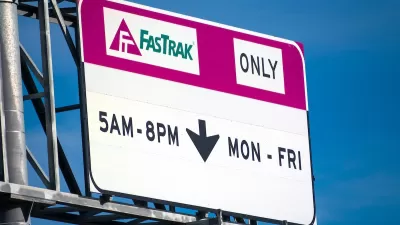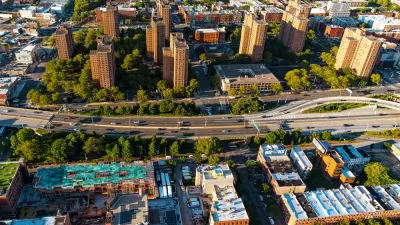State transportation officials say a proposed road expansion project would reduce congestion — if coupled with transit initiatives.

Maine transportation advocates are calling on state officials to reject a highway expansion proposal that state transportation officials claim would reduce carbon emissions, reports Annie Ropeik for Energy News. “The toll road aims to offer a more direct route from Portland’s growing suburbs into the city, bypassing local roads that officials say weren’t designed to accommodate increasing commuter traffic.” A Maine Turnpike Authority (MTA) spokesperson say the Gorham Connector project is part of “a multi-pronged approach” that also includes land use and transit initiatives.
According to Benito Pérez, the policy director of the nonprofit Transportation for America, any emissions reduction benefits are ‘negligible.’ “Pérez pointed to examples in the Washington, D.C. area, Salt Lake City and elsewhere where highway expansions that aimed to reduce gridlock instead led to more traffic and further need for expansions years later — a paradox known as ‘induced demand.’”
A 2012 study recommended the project in addition to changes to roads, transit, and land use and development patterns, but advocates say “these other efforts are moving more slowly and with less state support than the Connector has received, putting these parallel solutions out of step with each other.” According to Pérez, “The mindset is, ‘we’re designing for vehicles,’ and that’s what they’re measuring for, not measuring for the movement of people.”
FULL STORY: Critics, studies cast doubt on Maine’s claims of climate benefits from highway expansion

Alabama: Trump Terminates Settlements for Black Communities Harmed By Raw Sewage
Trump deemed the landmark civil rights agreement “illegal DEI and environmental justice policy.”

Planetizen Federal Action Tracker
A weekly monitor of how Trump’s orders and actions are impacting planners and planning in America.

How Atlanta Built 7,000 Housing Units in 3 Years
The city’s comprehensive, neighborhood-focused housing strategy focuses on identifying properties and land that can be repurposed for housing and encouraging development in underserved neighborhoods.

In Both Crashes and Crime, Public Transportation is Far Safer than Driving
Contrary to popular assumptions, public transportation has far lower crash and crime rates than automobile travel. For safer communities, improve and encourage transit travel.

Report: Zoning Reforms Should Complement Nashville’s Ambitious Transit Plan
Without reform, restrictive zoning codes will limit the impact of the city’s planned transit expansion and could exclude some of the residents who depend on transit the most.

Judge Orders Release of Frozen IRA, IIJA Funding
The decision is a victory for environmental groups who charged that freezing funds for critical infrastructure and disaster response programs caused “real and irreparable harm” to communities.
Urban Design for Planners 1: Software Tools
This six-course series explores essential urban design concepts using open source software and equips planners with the tools they need to participate fully in the urban design process.
Planning for Universal Design
Learn the tools for implementing Universal Design in planning regulations.
Caltrans
Smith Gee Studio
Institute for Housing and Urban Development Studies (IHS)
City of Grandview
Harvard GSD Executive Education
Toledo-Lucas County Plan Commissions
Salt Lake City
NYU Wagner Graduate School of Public Service





























